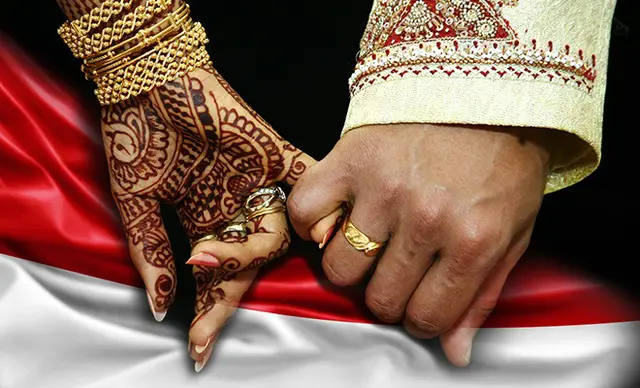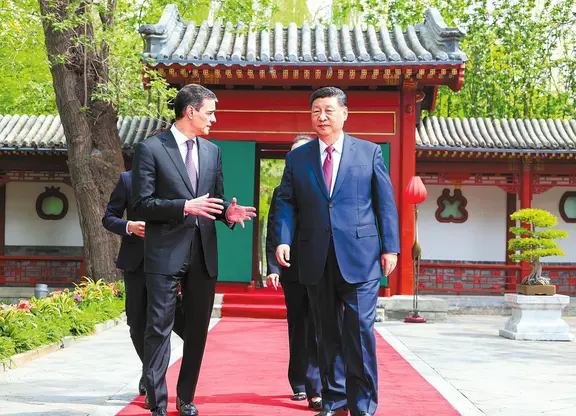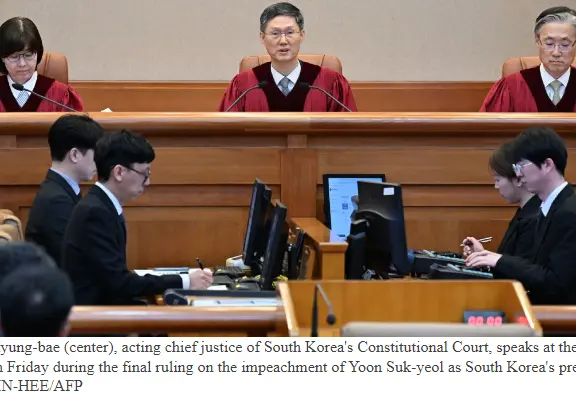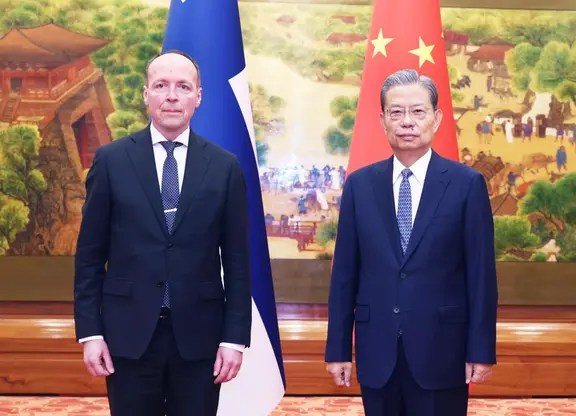By APD writer Alice
Young singles in Asian countries and territories now have many new trends in dating and marriage amid the rapid development of modern life.
In Indonesia, more young singles are turning to marriage without dating.
Frustrated after a string of break-ups, Dwita Astari Pujiartati quit the casual romance circuit and turned to a growing trend among Indonesian singles - marriage without dating.
The 27-year-old girl sent documents to matchmaking units to find a lover. After that, Pujiartati decided to contact someone who also wanted to give contact-less dating a whirl. There was no hand-holding or kissing. The pair didn't even meet in person for almost a year, chatting on the telephone instead. After they felt, Pujiartati and her lover (now her husband) decided to go to marriage without dating.
In fact, Pujiartati's case is not uncommon in Indonesia today. A movement called Indonesia Tanpa Pacaran (Indonesia without dating) is blossoming in the Southeast Asian nation where people born from the mid-Nineties make up about one-quarter of its more than 260 million people. The movement calls on couples to skip the dating and love stages to get married soon. They think dating a lot and getting nowhere will be a waste of time.
The movement was kicked off in 2015 by then university student La Ode Munafar, who recently hosted a "mass break-up" on New Year's Eve in Kendari city on Sulawesi island.
With dozens in the audience, the 29-year-old denounced dating and called on attendees to break up with their partners. One young man walked on stage and broke it off with his girlfriend over the phone, eliciting cheers and clapping.
Cheery stories about marriage-without-dating bliss populate Indonesia's huge Internet space. However, many critics in Indonesia say that getting married does not go through the stage of inquiry but based on files will make the relationship lack a true connection. This will lead to failure in marriage and even dangerous for women.
They said the marriage without dating is a reaction to reassure Muslims' morale in the fear of fading traditional values in the most populous Muslim-majority country.
Marriage-without-dating is also a pushback against fears that two decades of democracy have broken down traditional values in a country where arranged marriage was once the norm, and still endures in some rural areas, they added.
Meanwhile, supporters insist the practice empowers women by giving them control over choosing a partner without feeling compelled to have sex before marriage.
And it doesn't require permission from family members like arranged unions do, they said.
Meanwhile, young singles in South Korea tend to watch clips depicting the happy moments in a married life such as a honeymoon, peaceful breathing of the wife while sleeping, the husband’s proposal to have a child, the happy reaction of the husband when he hears the wife is pregnant to ease boredom and loneliness. The most common audience for these videos is people in their 20s and 30s.
Lee Joon Hee, 27, works at a technology company. He wants a girlfriend but he is not sure he has enough time for his lover.
He called watching the videos about the happy married life online as a way to "console himself". In his heart, Joon Hee still wants to have a family.
“Living alone for a few years, I find the idea of having my own home somewhat appealing. I don't like being alone, but I'm also used to it, ”Lee said.
This indicates that young people still want to get married and have children, although more and more Koreans are choosing to live alone, not in love, ”said Koo Jeong-woo at Sungkyunkwan University in Seoul.
The statistics also support the view that young people in the country choose to be single, say no to dating and marriage. They do not want this, but they see that the maintenance of the relationship is too costly.
30-year-old Yoon Hwan was very happy when his long-time girlfriend agreed to a proposal. But also very quickly, the “money” problem forced him to rethink the story of a marriage.
The amount of money Yoon saved was just 10 million won, not enough to buy a small apartment in Seoul. "Maybe, I will get married when I have enough money," Yoon said sadly.
A 2017 survey conducted by the Korean Institute of Child Care and Education, on 1,073 single people aged 20 to 39 found that only a quarter of the respondents did not want to get married.
Nearly half of these people revealed that limited finance was the main reason, and the rest said they felt comfortable when living alone.
For a long time, the story of a lazy young generation who does not want to love and say no to marriage has become a prominent social issue in South Korea.
The declining marriage rate leads to a decrease in the birth rate. The number of newborns in the land of kimchi was 326,900 in 2018, down sharply from 1 million in 1970, according to Statistics Korea.
In 2018, the number of married couples in Korea was just over 257,000, the lowest number ever since 1972, when the Korean population was still small.
Meanwhile, in Hong Kong (China), singles are more open to dating foreigners than their counterparts elsewhere in Southeast Asia, a reflection of the international nature of the city.
A survey on dating trends of singles across Asia conducted by Singapore-based multinational dating company Lunch Actually for six consecutive years found that a relatively stable proportion of Hong Kong singles (about 60 percent) are open to dating foreigners. This percentage is higher than those in Singapore and Malaysia similarly willing to date people from a different nation, but lower than that in Thailand, with about eight in 10 Thai singles open to dating foreigners.
“Hong Kong is a cosmopolitan city. Compared with Singapore and Malaysia, there are more expats working in Hong Kong,” says Violet Lim, CEO and co-founder of Lunch Actually. “That’s why Hong Kong offers more chances to meet foreigners, and people are more willing to open up to them.”
This year, the survey involved more than 2,800 singles online, aged from 21 to 51 years old, from five Asian economies: Hong Kong, Singapore, Malaysia, Indonesia and Thailand.
Using a dating app is one of the top three ways of meeting a new date in all five economies and the top choice in Singapore, with 51 percent of 600 Singaporean singles saying they prefer to use dating apps to search for a significant other.
More than half of the respondents say they pay close attention to “positive values” on the first date, according to the survey. A person’s values and beliefs were important factors to consider for 59 percent of men singles and 47 percent of female singles.
The survey found Hong Kong had the most single women (62 percent) who were willing to date men who earned less than they did, while Indonesia had the smallest proportion of these women (about 40 percent).
On the other hand, compared with six years ago, there are more single men in Hong Kong (87 percent), Malaysia (97 percent) and Singapore (91 percent) who say they wish to date women with a higher income.
Malaysian and Thai men are the most open to dating women with higher education, with only 1 percent of Malaysian men and 3 percent of Indonesian men preferring not to date women who have a better education.
Most Hong Kong men (87 percent) say they are open to dating women with a higher income and 93 percent of them are ready to date partners with a higher educational background.
(ASIA PACIFIC DAILY)
 简体中文
简体中文





















